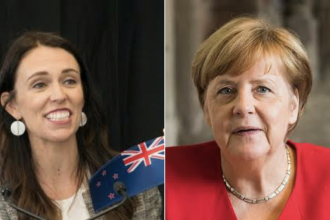
Monday November 11, 2024
How Does the New Model of Digital Advertising Impact the News and Politics We Consume
Historically, advertisers needed a platform to reach audiences, and in the 19th century, newspapers quickly became that medium. Benjamin Day’s New York Sun was among the first papers reliant on ad revenue, and he aimed to provide “all the news of the day,” but it was also a way to capture readers’ attention for advertisers. Today, the medium has evolved into the screens we stare at all day—our phones, laptops, and tablets—delivering not only the news but also an endless supply of advertising space.
In essence, both in Day’s era and now, the objective has remained the same—catch their eye with the news and hold it long enough for the ads. But today, the news isn’t just news anymore. The content itself is shaped by the same algorithms that drive the advertising machine. That’s where things start to get a little murky.
The Influence of Ad Tech
The rise of digital advertising has dramatically shifted how we experience the world—or, more accurately, how the world experiences us. The founders of Google, arguably the pioneers of today’s ad tech, warned about the potential dangers of a search engine biased toward advertisers rather than users.
Ad tech operates on a simple premise: gather as much data as possible from users. Every site you visit, every click you make, leaves behind digital breadcrumbs that ad tech companies can collect. The reason? To deliver personalised ads that cater to your specific needs, thus creating a custom-tailored marketplace. Google’s algorithms, for instance, use this information to match ads with the right audience at the right time, all while shaping the content users see.
But this same trove of personal data, harvested without many of us even realising it, can be exploited by political actors. If you can understand a person’s beliefs, preferences, and behaviour, you can target them with precise, potentially manipulative content. This technique has profound implications for political campaigns.
The UK’s Brexit Campaign: A Case Study
A clear example of how ad tech has influenced political discourse is the UK’s Brexit campaign. During the campaign, Vote Leave—the official campaign to exit the European Union—used sophisticated data-driven advertising tactics to target specific voter groups on social media, particularly Facebook.
One of the central tools of Vote Leave’s campaign was its use of targeted ads based on data harvested by the political consultancy firm Cambridge Analytica. They used this data to deliver personalised ads to voters identified as persuadable. The ads were often emotional, emphasising fear of immigration or the supposed costs of remaining in the EU. The micro-targeting was so specific that it often bypassed traditional media scrutiny, allowing Vote Leave to push different messages to different groups, some of which were misleading or inflammatory.
This use of data to manipulate voter sentiment was amplified by the social media algorithms that prioritise content based on engagement. Posts that generated strong emotions—particularly anger and fear—were more likely to be shared, creating a cycle of outrage and misinformation. This tactic wasn’t limited to Facebook, platforms like YouTube were also flooded with misleading videos and advertisements, with content designed to trigger an emotional response.
The 2019 UK General Election
Following Brexit, the 2019 UK General Election further demonstrated how digital advertising can shape political outcomes. The Conservative Party, in particular, made extensive use of Facebook ads to micro-target voters. One infamous example was the “NHS in crisis” campaign, which used alarming messages about healthcare funding to attract attention and gain votes. By targeting these messages at swing voters in key constituencies, the Conservatives were able to influence voting behaviour in a way that traditional campaign strategies couldn’t.
However, it wasn’t just the content of the ads that raised concerns—it was also the lack of transparency around who was funding them. During the election, Facebook came under fire for allowing political ads that contained misleading or false information. These ads would often disappear before they could be fact-checked, leaving voters with a skewed perception of reality.
Labour’s digital campaign, while smaller in scale, also leaned into emotional messaging, particularly focusing on the NHS and other public services. However, Labour struggled to match the Conservative Party’s more sophisticated data-driven approach, which allowed the Tories to target specific demographics with pinpoint accuracy.
The Real Issue: How Ad Revenue Shapes Content.
In the world of digital advertising, money is made through clicks. The more clicks a page generates, the more revenue it pulls in. This system incentivises content creators, whether they are journalists, bloggers, or trolls, to create sensationalised content that drives clicks—sometimes at the expense of the truth.
In the UK, this dynamic is particularly evident in the rise of “clickbait” news sites and low-quality, highly emotional political content. These sites rely on programmatic advertising, which allows advertisers to automatically buy and place ads on websites without much oversight. The goal is simple: attract as many clicks as possible, regardless of the quality of the content or its truthfulness.
This creates a feedback loop where sensationalism is rewarded, and accurate, well-researched news struggles to compete. With bots and other automated tools flooding social media with disinformation, it becomes harder for voters to separate fact from fiction, leaving them vulnerable to manipulation.
The Future of Digital Advertising and Democracy
While it’s clear that ad tech is here to stay, its influence on both the news we read and the political information we consume raises troubling questions. The same tools that allow advertisers to sell us a new pair of shoes or a flight deal are also being used to push political agendas, often in subtle and undetectable ways.
With artificial intelligence and machine learning advancing at a rapid pace, the precision of these tactics will only increase. Advertisers and political actors will continue to refine their strategies, targeting voters with even more accuracy. Meanwhile, the spread of misinformation will become harder to combat, and the line between legitimate news and fake news will blur even further.
As ad tech continues to evolve, it’s not just our personal privacy at risk—it’s the very nature of our democratic systems. The distortion of news and political information by digital advertising presents a significant challenge, one that requires a combination of regulation, ethical business practices, and public awareness to address. If we fail to act, we risk further eroding trust in the media and in democracy itself.
Curzon PR is a London-based PR firm working with clients globally. If you have any questions, please feel free to contact our Business Development Team bd@curzonpr.com







Follow us